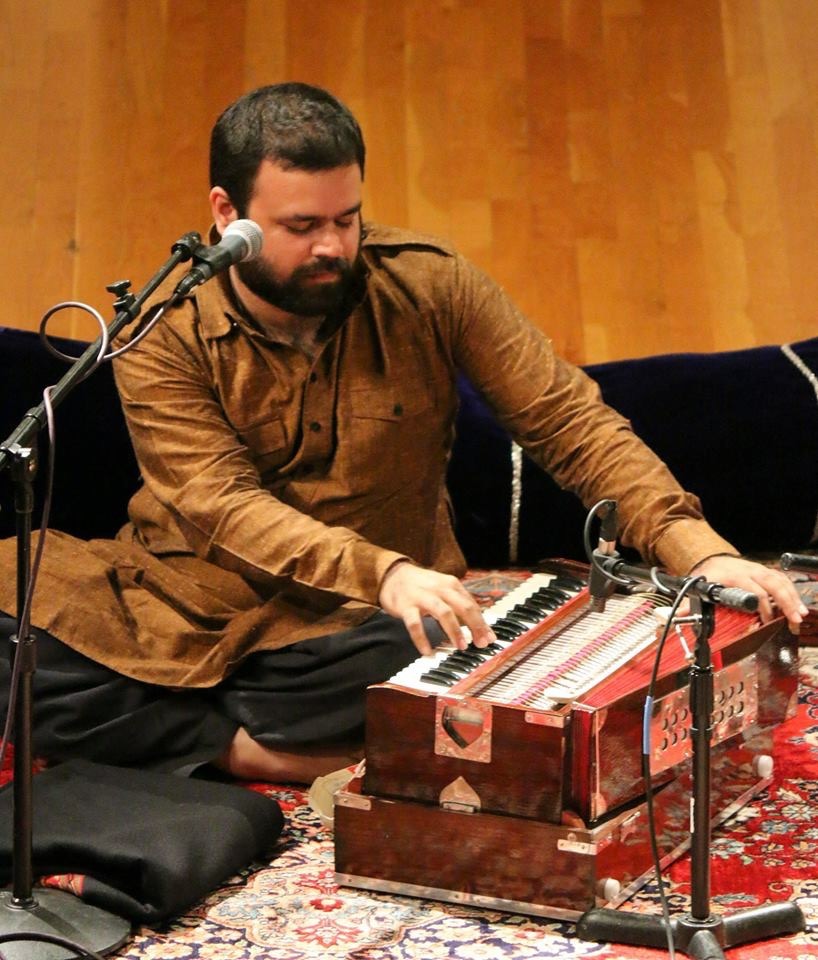In the middle of LINTON road, a rickshaw comes and stops in front of the woman. She intends to hire it for going to a destination. The rickshaw driver looks at her and assents to take her to the desired stop.
Sc –I
Woman – Will you drop me at this address?
Driver- Yes madam. Please sit.
Woman- Be quick. I don’t have time.
Driver- yes madam..
Woman- Thank you.
Driver- No thanks. I am there to take people to their desired stops. But…
Woman- But? Are you worried about your fare? Do not worry. I will give you cash.
Driver- No. I am not worried about money. I am thinking that YOU are going to give my your life.
Woman: What?
Driver- No madam. Nothing. I just said nothing at all. Don’t worry. Come, it’s going to be night soon and this road becomes quite isolated. It is not safe to be here for a long time.
Sc II
(The rickshaw starts with a jerk. The woman gets a strong jolt)
Woman- Oh! Driver what’s this? Be careful.
Driver- At times, it isn’t in our hands madam.
Woman-But it is in our YOUR hands only!
Driver- No. I have to take many abrupt decisions while driving. This was one of them. I did not intend to put sudden jerk otherwise. The road’s quite open to receiving jerks when we start off.
Woman- Whatever. Let’s go.
Driver (speaks softly)- Go. This word has the implication of going and when I am going, I have to be on the go and when I am on the go, none disturbs me. Get Set Go!
Woman- What are you muttering?
Driver- Nothing madam. Yes, you said go. But…
Woman- But what?
Driver- We cannot GO.
Woman- What! Just a moment ago you said you are ready to go and now you are denying.
Driver- I am ready to go madam. But not ready to go now.
Woman- What? What are you talking?
Driver- Just wait madam, wait for some time. We need to. Or else, it might get too late.
Woman- What nonsense is this? You said we must start off quickly as it might get isolated here soon and now you are telling me to tarry?
Driver- Life is unexpected madam. The clutch wire just broke when I gave the jerk.
Woman- Oh! Now it would be needless delay. Never mind. I will hire another rick.
Driver- Not possible madam. It is not going to be easy for you to get another vehicle here.
(She stands there and tries to call other rickshaws. None of them stops. Comes back to the same rickshaw driver. Stands there.)
Woman- Ok. I am waiting here. Be quick.
Driver- Am trying my best. At times things are not in our hands madam.
Woman- But the wire is in your hands.
Driver- But its intention to get repaired or not does not lie in my hands madam.
(After almost an hour’s time, he is able to repair the clutch wire)
Woman- Now let’s go. Enough of waiting here.
Driver- Yes madam. Sit inside the auto.
(As she moves towards the auto, her foot twists unexpectedly while walking and she cries in pain.)
Woman- Oh God! I did not notice this stone in the middle. My foot got twisted! I am feeling awful. I never did think anything of this sort would happen. Thought I would hire and auto and reach home quickly.
Driver- At times, life shows us what we do not expect madam. Do not worry. I will support you and help you to get in the auto. Come, lean on my shoulder.
(He supports her)
Woman- ok. Now finally should we set off!
Driver- Yes madam.
(He starts the auto and takes it off. The woman sits quietly in the seat at the back. He keeps driving.)
Woman –(calls her friend) I will reach in no time. Actually, I can explain ( suddenly, there’s a speed breaker and the rickshaw crosses it very quickly. Once again, she gets a heavy jerk.)
Woman- Drive slowly. Will you. Can’t you see the speed breaker?
Driver- Madam. At times we are forced to drive quickly. You said you need to reach fast. I thought…
Woman- So that does not mean you drive haphazardly. Drive carefully.
Driver- Ok madam.
(Suddenly stops the auto)
Woman- What? Why have you stopped?
Driver- Madam. It is dinner time for me. I need to eat my food. You need to wait.
Woman- What?
Driver- yes.
Woman- But you drop me first then have your dinner. What are you up to?
Driver- Up to nothing madam. I am telling you one simple thing. I cannot drive ahead without my food. I need to finish my dinner. Wait in the auto. I will come in no time.
(She waits reluctantly and knows well that no rickshaw was available in that area. He comes after almost forty five mins)
Woman- Now should we go?
Driver- If you ask me madam, it means you are taking my permit. I am nobody to decide.
Woman- But you are the DRIVER. Driving me is in your hands.
Driver- No madam. Driving both of us is in someone else’s hands.
Woman- What absurdity is this? You drive take me to my destination.
Driver- You think you have a destination. (Laughs.) Everybody thinks so. But none has any.
Sc III
(She looks at him almost frantically.)
Woman- Why are you talking wierd?
Driver- Nobody makes any sense in the world madam. Especially lower class people like us, we often become senseless in front of everyone.
Woman- See right now it is not the time to check whether you are sensible or senseless. Now is the time to drive safely and help me reach my destination. I am wanting eagerly to reach at a place.
Driver- That’s what I am doing madam. Helping you reach your destination.
Woman-With the kind of slow speed that you are driving, I do not think we will reach there ever.
(stops the auto. The woman looks at him irritatingly.)
Woman- Why did you stop the auto?
Driver- I need to get the CNG filled.
Woman- Listen, do it afterwards. I do not want to be late.
Driver- Madam. There is no fuel left.
Woman- What? Why didn’t you tell me earlier. I would not have hired your auto.
Driver- Madam, it will take 5 mins.
Woman- Ok.
(Gets the fuel tank filled. The woman waits.)
Woman- Now can we get set go?
Driver- Madam, wait. I need to get the change to give them money.
Woman- Wait, here I am giving you change. Take it. Give it to them. Let’s leave.
Driver- Ok madam.
(He makes the payment at the petrol pump. They start off and come at crossroad)
Driver- Madam. Two roads diverge. Which one to take?
Woman- The left one. Wait, perhaps, I would have to check on my phone. Ok , here it is the right one. That’s the direction it shows.
Driver- But madam, this road is very long. It will take time.
Woman- My mobile does not lie. It is the most convenient road it shows.
Driver- So I should take this one right?
Woman- Of course.
Driver- So be it.
(He turns right. The road continues and has many lanes. After some time the woman gets annoyed.)
Woman- What is this? Lanes after lanes?
Driver- Madam, I told you this road is long but you did not listen to me.
Woman- Now what to do?
Driver- Let’s go back.
Woman- Ok.
(He takes a reverse turn, in just a few mins, they come to a specific point where there is traffic jam)
Woman- O my God! We did not have it while we took this road, now where did this come from?
Driver- It is a procession that has just started madam.
Woman- We are stuck!
Driver- We are often stuck in the middle of roads madam.
(After almost an hour’s wait, the traffic heals. They move ahead.)
Woman- I wanted to reach there two hour before. Little did I know I would get so late!
Driver- We often do not know the future madam. But better late than never.
Woman- What do you mean?
Driver- Meaning, we would reach there some time, some day.
Woman- What? What are you talking?
Driver- Nothing madam. The fact of life. The crux of living this life is an eternal journey that never ends. Right?
Woman- Don’t be philosophical. I do not have time.
Driver- None has time. Time has everyone.
(Puts a sudden break. Stage goes dark. The next moment we see bright light on the stage and many people having gathered there.)
Person I – Oh sad, very sad the accident.
Person II- The autowala is dead.
Person III- The passenger?
Person I- Nowhere to be found.
Person II- Let us inform the police.
(They call the ambulance and the police who come and do the needful in the case.)
The next day, a woman stands in the middle of the LINTON road. She stops an auto, hires him.
Woman – Will you drop me at this address?
Driver- Yes madam. Please sit.
Woman- Be quick. I don’t have time.
Driver- yes madam.
Woman- Thank you.
Driver- No thanks. I am there to take people to their desired stops. But…
Woman- But? Are you worried about your fare? Do not worry. I will give you cash.
Driver- No. I am not worried about money. I am thinking that YOU are going to give me your life.
Woman: What?
(Next day in the newspaper. Linton road seems to be haunted. A driver with an auto is seen moving around and a lady comes and boards it. They both act as passenger and auto driver. After a while, people hear a loud shriek, an auto driver in the same locality is found dead.)
Lights off stage darkens. After a while there is light all around.
For any comments please write in the comment box below:


